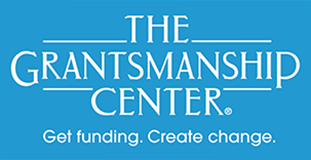Managing Your Grant
Nuts, Bolts, Coffee
Everyone is elated! All the planning and research paid off and your organization has been awarded its first grant. Whether it’s a $500,000 grant from the US government or a $10,000 grant from a private foundation, now’s the time to lay essential groundwork to ensure grant funds will be spent and accounted for as required, and that program obligations will be met. Welcome to the world of grants management.
The Initial Paperwork
As you might imagine, government grants come with more red tape than foundation or corporate grants. For government grants, your top executive officer or board chairperson must usually sign and return documents accepting the grant award and agreeing to reporting and fund draw-down requirements, as well as any other special requirements that have been attached to the funding. This is strictly a business transaction—there’s no need to send along a warm letter of appreciation. Be sure to return paperwork by the required deadline.
Corporations and foundations sometimes require that officers sign a letter accepting the grant award, but often they don’t—a check simply arrives in the mail with a letter of congratulations laying out the expected reporting requirements. If you’re expected to return a signed acceptance document, do so promptly and be sure to include a letter expressing appreciation, acknowledging any reporting requirements, and inviting the funder for a visit. While this is a business transaction, it’s also a starting point for building an ongoing relationship of trust, commitment, and support.
Establish both an electronic and hard-copy file for each grant your organization receives. Since so much business done electronically, be sure that e-documents and emails are organized for easy access–and be sure electronic documents are backed-up in case of a failure in technology. Place copies of signed grant documents in a hard-copy file, and keep the file updated with subsequent correspondence related to the grant. When an e-document is of particular importance, print it out and file it here as well.
Put the Financial House in Order
To establish your organization’s ability to receive and manage grants, it’s necessary to establish adequate accounting practices and systems.
A primary concept in grants management is that each specific grant award should be accounted for as an “independent cost center.” This means that all income from a grant and expenditures from that grant are accounted for as a distinct, separate category within your accounting system. This is a basic protection against co-mingling all funding into one big pot and losing track of what money paid for what expenditure. Using an “independent cost center” approach helps to ensure that grant funds are spent for the intended purpose and can be fully accounted for at all times.
While this article can’t provide a basic overview of bookkeeping or accounting, the strength and clarity of your organization’s fiscal systems will play heavily into the ability to manage grants. If a strong accounting system is not in place, and if there’s not an expert on staff, seek guidance from someone who knows what they’re doing.
A few of the most basic, most critical rules include:
- Only expend funds as laid out in the approved grant budget
- Never use funds from a grant for items not included in the grant budget or for purposes other than those described in the grant narrative
- If the original budget requires an amendment in order to support the purpose of the grant, contact the funder to get permission before making changes
- Support every expenditure with adequate documentation
- Use a system of checks and balances so that no one person is solely in charge of the money (e.g., dual sign-offs on expenditure requests and checks).
- Keep receipts, documentation, and monthly financial statements well-organized and accessible
- Monitor grant expenditures monthly to ensure that over-spending or under-spending can be addressed before the end of the grant period
If your organization doesn’t have a high-quality accounting software package, get one or retain an experienced bookkeeping firm. Strong financial management is essential to the health of your organization and there’s no way to manage grants effectively if the fiscal house isn’t in order.
Review the Grant Proposal
In the euphoria of receiving grant funds, staff members can forget to review the grant proposal to refresh their memory on the specifics laid out in the narrative and this can lead to problems. It is not unusual for three to nine months to pass between submission of a proposal and receipt of an award. Nobody’s memory is that good.
Upon receipt of an award, call a meeting of the executive, fiscal, and program staff who will be involved and review the grant document to ensure a common understanding of exactly what must be done. If the grant included a thorough Methods Section with a detailed time-line assigning responsibility for major tasks, that will be extremely helpful.
If the proposal didn’t include that, now’s a good time to hammer out those details. By reviewing the proposal thoroughly and making sure all elements are implemented as planned, you’ll be laying the groundwork for success and avoiding major problems that are inevitable when grant implementation drifts off course from the original plan.
Understand Rules and Regulations
While all grants management requires checks, balances, documentation, fiscal controls, and the like, there is no doubt that grants from government agencies are especially demanding.
If you have received a grant from a federal government agency, be sure you study that agency’s rules and regulations regarding grants, and that you also study the Office of Management and Budget (OMB) Circular that specifies the administrative rules regarding grants to an organization such as yours (i.e., nonprofit organization, hospital, educational institution, municipality, etc.). If the agency doesn’t provide you with a grants management document or booklet, ask if they have one and if so, get it. OMB Circulars can be found at www.whitehouse.gov/omb/circulars.
If you don’t understand something, figure out who can provide you with accurate information and call them. If you are overwhelmed, retain a consultant to determine exactly what you need to do and to help you get the necessary systems set up.
Schedule Reports
Almost all grants require that financial and program progress reports be submitted according to a schedule. With the hectic work pace that often accompanies receipt of a grant award, it’s critical to establish a system for recording when reports are due and then reminding responsible staff of upcoming deadlines. If staff members realize that reports are due within a week, or are past due, it’s not possible to do a high-quality job. Poor or late reporting will damage your organization’s credibility with the funder.
Even if a funder does not demand reports, provide them. It’s good business practice, enhances credibility, and helps to build a solid relationship with the funder. You can establish your own reporting calendar in this situation, but take it seriously and make sure you provide information at the six- and twelve-month points at a minimum. If you’ve never done a grant report, and the funder hasn’t provided a format, include the following information:
- Financial overview: explain the grant’s status including income, expenditures by line-item, and funds remaining
- Program implementation: Update the funder on was originally planned and what has been accomplished to date
- Program Outcomes: The best evaluation plans measure program results as the grant work progresses, rather than at the end of the period of grant support. Provide the funder with information on evaluation activities and on the degree to which the program is producing the results that were expected.
- Change of Plans: If an alteration of the planned approach is needed to achieve the best outcomes, explain what you need to change and why. If the alternation is major or will result in budget changes, you’ll need to request a meeting or phone call with the funder.
- Challenges, Successes, and Lessons: If your organization has encountered specific challenges in implementing the program, or has had great success in some area, let the funder know. And if there are lessons that have been learned that will inform the future work of your organization, explain that as well.
- Attachments: Attaching pictures, news clips, letters from the people benefitting from the program, or other relevant information can bring the report alive and engage the funder more deeply. Don’t overdo it, and don’t do it at all if the funder asks you not to.
Reports, like any other important documents, must be passed up a chain of command for sign-offs before being submitted. When establishing the reporting calendar, schedule in time for submission of drafts to supervisors, draft revisions, and final sign-off.
An Outlook or other electronic calendar can be used to schedule reports and remind staff members of deadlines, and a master reporting calendar can be established on a spreadsheet. Just be sure that someone is minding that shop.
Don’t Forget Partner Organizations
Most grant proposals include some sort of collaboration with other organizations. These partnerships are usually critical to implementing a program and sometimes involve the sharing of grant funds through subcontracts. When the funded proposal includes partnerships with other organizations, it’s critical to make a strong start together and avoid misunderstandings. To accomplish that:
- Immediately inform partner organizations that your organization has been awarded the grant.
- Provide partner groups with a copy of the grant proposal, or at least with that portion of the proposal that spells out their involvement in the program’s implementation.
- If your organization will be sharing grant funds with other organizations, draft contracts regarding the sub-grant relationships and provide your partners with copies for review and discussion. While contracts will be specific for each partner organization, at a minimum each should spell out agreements concerning:
- The amount of funds to be provided, and the payment schedule (funds should be provided incrementally in response to deliverables)
- Reports required and deadlines
- Services to be delivered and timeline
- Consequences of non-compliance with contract agreements
- Hold a meeting of partners to celebrate the grant award, to review each organization’s role, to agree on reporting deadlines, and to finalize start-up plans. Be sure the discussions are recorded.
Announce it to the Community
A grant award increases your organization’s capacity to serve the community and shows that funders are willing to invest in its work. Some funders request that their grant contributions be announced to the public, but even when they don’t, it’s a good idea. Let the public know what’s happening, highlight your organization’s commitment to the cause, and publicly thank your funder for the support. It’s a good investment in community relations and funder relations, and may even help build future support for what you’re doing.

Want more?
The Grantsmanship Center has a wealth of resources for you! For 50 years, we’ve served nonprofits, academia, and government and Native American groups by providing training and the textbook, Grantsmanship: Program Planning & Proposal Writing. Choose a training to fit your budget, schedule, and experience and join 145,000+ alumni helping to build a better world!
We welcome you to link to these pages and to direct people to this information on our site.
If you'd like to use this copyrighted material in some other way, please contact us for permission: info@tgci.com.
© copyright 2009-2023 The Grantsmanship Center. All rights reserved. (800) 421-9512


